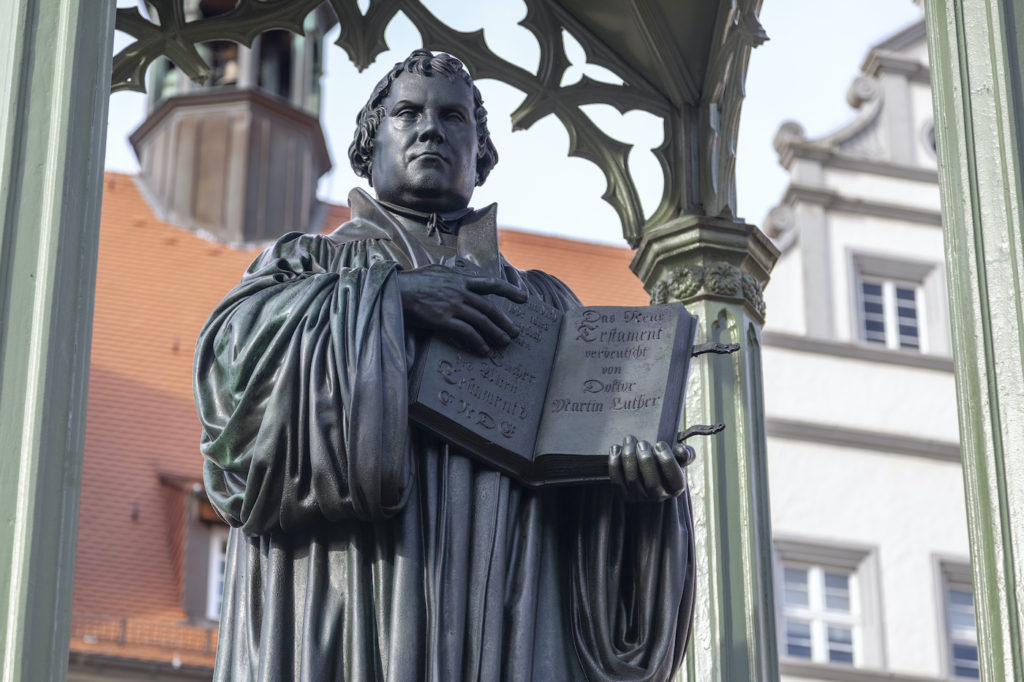Much like the related concept of social justice, contemporary discussions of the common good have been fraught with misunderstanding, dismissal, and polemic. The theoretical relationship of the individual to the community represents a challenge for constructive engagement with the common good for many today. There is an ongoing skepticism of ideas such as the common good and social justice because of their association, arising at least partially out of the crucible of the Cold War, with communism and socialism. Good and proper concern for the inviolable dignity of the individual human person unfortunately can lead to rejection of the reality of social structures, institutions, and communities, as well as corresponding moral duties. Atomistic individualism really only allows for aggregate conceptions of goods rather than for communal goods that are in some sense greater than the particular constitutive elements.
Another challenge to the salience of the common good today comes from certain perspectives within Protestantism that identify the idea with Roman Catholicism, particularly Thomas Aquinas. Because of these associations, such challenges reject the common good as an interloper into genuine Christian (that is, Reformed Protestant) reflection. As part of their critical engagement with Roman Catholic social thought, James W. Skillen and Rockne M. McCarthy judge that “the combined weight of the idea of the common good and the concepts of subsidiarity and autonomy within a natural law framework do not supply an adequate, normative view of both the diversity and the complex unity of society.” Instead of this Roman Catholic perspective, which is understood as a problematic “pattern of synthesizing ancient and modern philosophical perspectives under the guiding moral eye of the Church,” a more thoroughly and characteristically Protestant perspective—defined best as “progressive Calvinism”—is to be preferred.
One final difficulty with the common good at a conceptual level has to do with abstraction. We think on a greater and greater level of abstraction as we examine the common goods of larger and more extended communities. The common good of procreation in the context of marriage is fairly concrete; the common good of distributive justice for a large multinational corporation, rather less so; and the common good of love within the human race, still less. One cannot simply wake up in the morning and pursue “the common good” in the same way that one might wake up and brew a cup of coffee or scramble an egg or brush one’s teeth. This phenomenon of abstraction does not mean that the common good as such or common goods are meaningless; but it does mean that such ideas are not sufficient in themselves for either individual moral guidance or for the formation of institutional and public policies. As Joseph E. Capizzi and V. Bradley Lewis put it recently at Public Discourse, “Debates about philosophical fine points related to the concept of the common good are no substitute for analysis of which constitutional structures, laws, and policies best promote and protect the common good.”
None of these challenges to the idea of the common good or to common-good reasoning, on their own or even taken together, constitute adequate grounds for rejecting this traditional framework for theological and moral discourse. This is true for Protestants as well as Roman Catholics. Concerns about the common good, however, do provide excellent motivation for sharpening our conceptual treatments of the common good taken in an abstract, singular sense and its relationship to more concrete and pluriform common goods.
Start your day with Public Discourse
Sign up and get our daily essays sent straight to your inbox.Common Goods and the Community
Most English bibles include one instance of the phrase “the common good.” It appears at the end of 1 Corinthians 12:7, which reads in the English Standard Version: “To each is given the manifestation of the Spirit for the common good.” The Apostle Paul is describing to the church in Corinth the manifold work of the Holy Spirit in providing people with gifts, talents, abilities, and dispositions to serve God through serving one another. Verse 7 is the apex of the passage, which opens with Paul’s assertion that “there are varieties of gifts, but the same Spirit; and there are varieties of service, but the same Lord; and there are varieties of activities, but it is the same God who empowers them all in everyone.” Verse 7 provides a summary of the purpose of these diverse gifts: they are provided in various degrees, measures, and distributions for each person to promote “the common good.” The rest of the passage details some specific examples of divine gifts, such as the “utterance of wisdom,” and the “utterance of knowledge,” as well as “faith,” “gifts of healing,” and “prophecy.” As Paul concludes, “All these are empowered by one and the same Spirit, who apportions to each one individually as he wills.”
From the context of this passage in 1 Corinthians it is clear that Paul is talking directly about the “common good” of the Christian church, the body of believers in Jesus Christ. In this way the language of the common good here refers to one of the classic ways that the phrase has been understood in the Christian and broader Western ethical tradition. In cases like this, the common good refers to the good that is characteristic of a particular community. There are as many common goods in this sense as there are communities, although each community has distinctive features constitutive of its highest good. The common goods that define different communities are related to the divine purposes for those communities. These highest goods are in some sense the reasons these communities exist and the purposes for which they have been created by God.
We might think of marriage as an example of such a community, willed by God into existence in his act of creation and woven into the fabric of human nature. The Anglican tradition has understood marriage as having characteristic goods including procreation, the avoidance of sexual sin, and the “mutual society, help, and comfort” of the spouses. Each one of these is a good that pertains to the community of marriage itself and can thus be understood as among the “common goods” of marriage. This is not to say that these are the only good things that marriage promotes or produces; clearly there are many other purposes that marriages can and do serve in society. It is to say, however, that these goods are somehow constitutive or definitive of this particular kind of community and that in some sense marriage has the realization of these goods as its primary purpose.
The Bible also speaks of what we might call common goods of a different sort: the gifts that God grants to everyone indiscriminately and promiscuously. These are the kinds of goods that are typically enjoyed directly and without mediation. Jesus talks about such divine gifts when he says that God “makes his sun rise on the evil and the good, and sends rain on the just and on the unjust” (Matt. 5:45). Sunlight, water, food, and air are examples of God’s gifts of common grace that are provided to human beings simply as created beings. They are goods whose enjoyment we share with animals and plants and are characteristic of our needs as created beings.
If we were to try to synthesize these two rather different ways of talking about common goods, we might say that things like rainwater, sunlight, and breathable air are common goods constitutive of the community of creation itself. To make sense of common goods, we have to determine the relevant communal context.
Even though in 1 Corinthians 12 Paul is talking about the church as such, there is a long tradition seeing this portion of his letter and other related passages as informing how Christians relate to their fellow human beings. Paul continues, for example, later in chapter 12 of 1 Corinthians to use the imagery of one “body” with many “members” to describe the church and the relationships of individual Christians to one another and to Christ. If this kind of organic relationship defines the Christian community, there are also analogous dynamics at work in other communities, such as society more broadly.
Just as Paul talks about “the body of Christ” to refer to the community of Christian believers, we also refer to things such as “the body politic” to refer to the political community and its members. Paul enjoins a universal mandate for Christians to seek the common good beyond the confines of the Christian community in numerous places, notably in Galatians 6:10, which reads, “So then, as we have opportunity, let us do good to everyone, and especially to those who are of the household of faith.” At work here is a distinction between “everyone” and “the household of faith,” the latter of which holds a kind of moral primacy given the spiritual proximity and unity of believers. But even so, the common good more broadly is to be the concern of this “household of faith” as well.
The Puritan pastor and theologian Richard Baxter (1615–1691) takes this Pauline directive as the basis for an extended treatment of the prudential concerns that complicate this universal calling. In How to Do Good to Many, Baxter writes that “to do good to all is all men’s duty.” This promotion of the common good of all of humanity applies particularly to Christians because they have been brought to life again and equipped to do good works and to glorify God in those good works. Even as all human beings are part of the human community and have corresponding moral obligations, Christians have especially been enabled by God to make such goods manifest. Speaking of the common good, he writes, “All men should do it: true Christians can do it, through grace, and must do it, and will do it. A good man is a common good.” Picking up on the Pauline imagery of a communal “body,” Baxter observes: “Every grace tends to well-doing and to the good of the whole body, for which each single member is made.” Each individual person has something unique to contribute to the common good of the various communities to which he or she belongs.
The Ultimate Common Good
The identification and definition of the relevant community is absolutely necessary for a proper evaluation of a particular common good. Even with the aid of special revelation this is no easy task. We can confidently identify the biblical picture of marriage as the one-flesh union of male and female as the traditional Christian view, but this is a definition of this community that is under unique and sustained assault today, not least from within churches and religious communities themselves. Nowadays we can rarely hope to judge by pointing with Paul to practices that are not “tolerated even among the pagans” (1 Cor. 5:1).
We need to think more deeply about common goods and “the common good” because these ideas actually do help provide normative guidance for living. When we have identified the created purposes of a social structure or institution, we can use that as a way of understanding whether a concrete expression of that community is living up to its divine mandate.
A helpful image for understanding the relationship of common goods in this sense is to picture a garden in which a wide variety of plants are growing and flourishing. There are different conditions and care that different plants need, and they all produce different kinds of fruit, flowers, and growth. Each family of plants contributes to the common good of the garden, but that larger common good is not simply an aggregation of all the individual plants in the garden. The pollen produced by one kind of plant helps others to flourish; the shade produced by a tree allows smaller plants to grow. The garden is a complex and dynamic ecosystem, and each leaf, each branch, each plant has something to contribute to the common good of the garden.
If we apply this image to the created order itself, we can get a sense of what the greatest “common good” of creation might be like. And yet even this is in some deep sense a finite (that is, created) good. There is still yet a greater common good that we have to identify. We need to know the one who made the garden and has provided for its care.
One final distinction may help in this regard, and that is the distinction between ultimate, spiritual, and eternal goods, and penultimate, finite, and temporal goods. As we read in James, “Every good gift and every perfect gift is from above, coming down from the Father of lights, with whom there is no variation or shadow due to change” (1:17). God himself, the giver of all good gifts, is the ultimate common good.
The challenge of relating the various common goods of created communities to God, our ultimate and eternal common good, is in fact another way of talking about the basic purpose of human life. Augustine long ago pointed out that all created goods, common goods included, are really to be used appropriately and justly as means to enjoying God himself.
Thus we might say that the chief end of humanity is to pursue the ultimate common good, God, with a right ordering of all penultimate common goods—or rather more elegantly, “to glorify God and enjoy him forever.”














